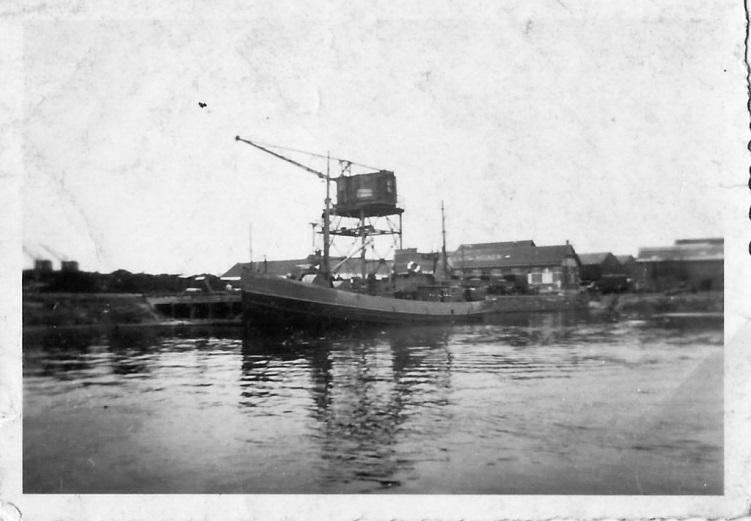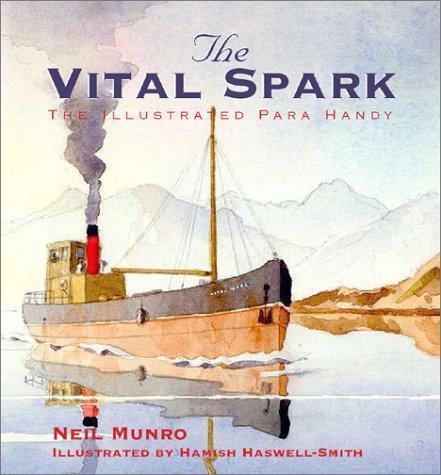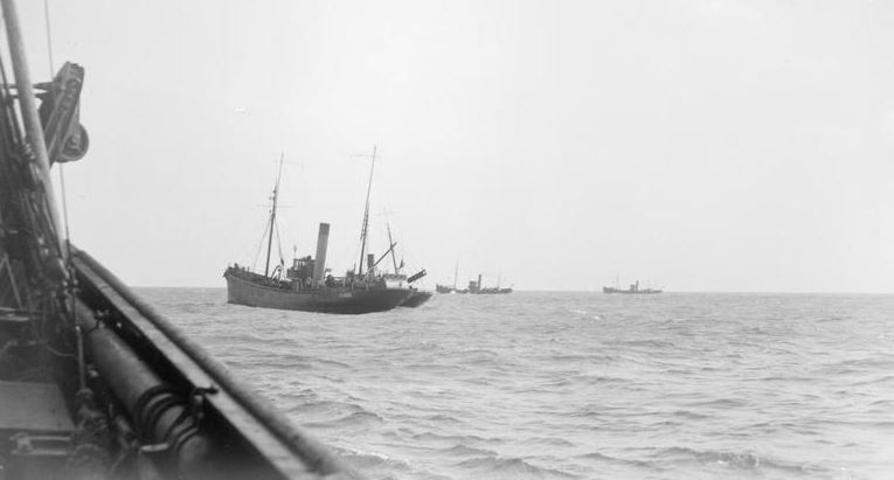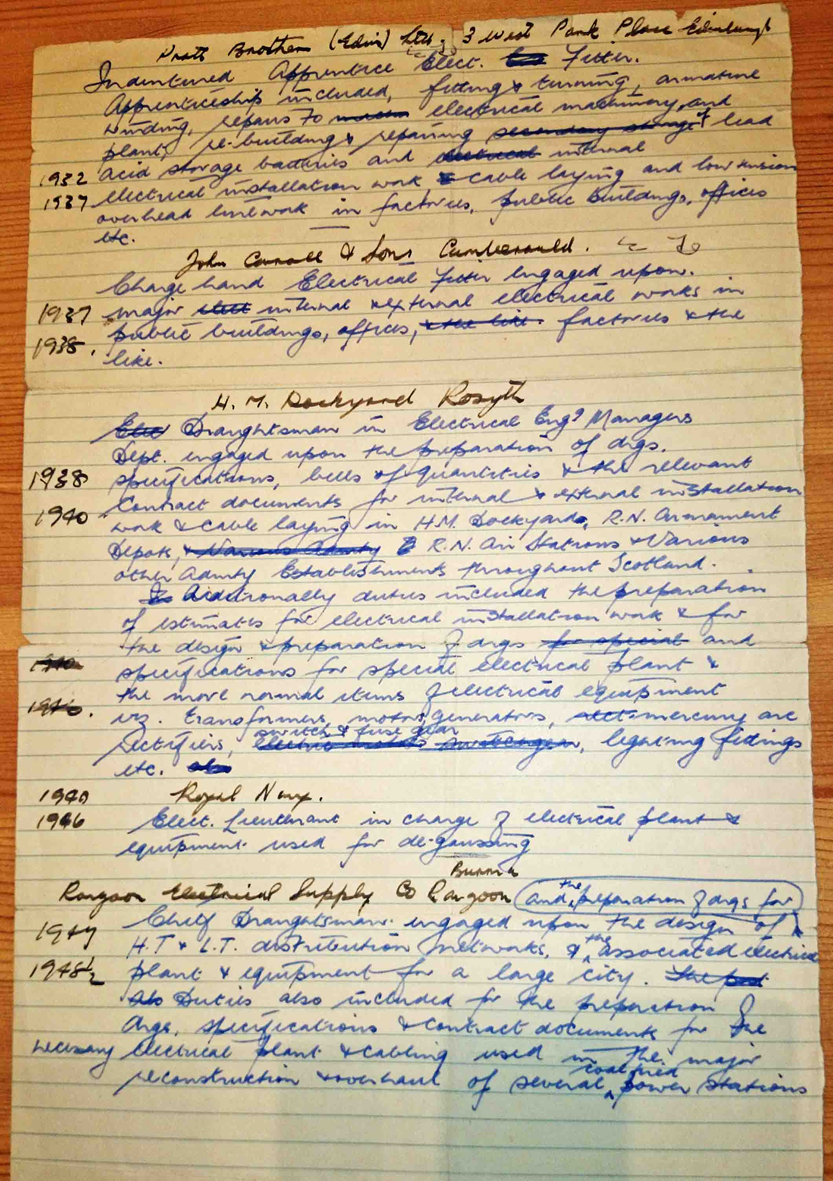Two of the main boats or naval ships our father worked on were “Girl Ethel” and “Young John” which were ‘steam drifters’. These are the fishing boats that had been requisitioned by the Navy. In other words, larger than the “Vital Spark”. They had most probably been ‘converted’ to provide living quarters for the crew, separated into crew and officers.
They were docked at Ardnadam Pier, Dunoon, along with a Norwegian fishing boat, “Fiskergutten”. Fiskergutten was one of the “Shetland Bus Boats.” Many books have been written about the “Shetland Bus Boats”, but I can’t go into details here. But I can include the brief description from Wikipedia.
“The Shetland Bus was the nickname of a clandestine special operations group. They made a permanent link between Mainland Shetland in Scotland and German-occupied Norway from 1941 until the surrender of Nazi Germany on 8 May 1945. From mid-1942, the group’s official name was the Norwegian Naval Independent Unit.”
The ‘Big Norse’

Comically, in the letters between my mother and father the ‘big Norse’ is mentioned. The ‘blonde’ bargirl in a local Dunoon pub (letter of Sept. 14, 1940) seems to be attracted to the ‘big Norse’. ‘Viking’ men must have seemed intimidating to my father who was only 5 foot 7 or 5 foot 8. In other words, the “big Norse” must have been some latter day Erling Braut Haaland (6 foot 4) that might have worked on the Norwegian boat.
Naval Ships or boats?
My father used to like to say he was the captain of a ship in the war. Regarding the term ‘ship’ – the steam drifters were relatively large boats. Hence, they could qualify (according to Wikipedia) to be termed ‘ships’.
Captain of the ship?
In addition, the senior officer on a naval ship or boat is called the captain. Of course, this is confusing as ‘captain’ is also a rank. So, if we are faithful to the terminology, my father was the captain of a ship. Of course, others might say that he was in charge of a fishing boat. My father was an electrician, with knowledge of ‘degaussing’.
In other words, in the common understanding of the word ‘captain’, one imagines that captains have navigational skills, and skills in the leadership of men. One might think of William Bligh, the Captain of HMS Bounty. The point I’m trying to make here is that my father was ‘captain’ on the basis of his senior rank as lieutenant. His crew were perhaps fishermen who had worked on the boat before it was requisitioned by the navy. In other words, they were the real ‘sailors’.
I’m not sure that my father knew anything about ‘ships’. After all, he was an engineer, and didn’t have maritime training. But he probably had practical skills related to the mechanical aspects of boats. It seems probable that he ‘learnt on the job’. But after he left the navy he showed little interest in boats, apart from helping me build a canoe when I was about sixteen, as part of my Duke of Edinburgh’s Gold Award. Similarly, he helped me restore my 1954 BSA Golden Flash motorbike – he repaired the magneto. So, he was definitely a ‘hands-on’ person who could ‘fix’ anything! This is something which his sons inherited – practical hands-on skills.
Fiskergutten
I don’t have any photographs of “Girl Ethel” or “Young John”, but I imagine they didn’t look that different from “Fiskergutten”, which my mother had a photo of, which I will include here.
As mentioned elsewhere, I am not an expert on old boats. But my mother had mentioned that the Norwegian boat had a ‘noisy’ engine. One can imagine that it was a so-called ‘putt-putt’ engine – a single cylinder, petrol engine.
The nearest I can come to this in my own young days is the Matchless G80 single cylinder 500 cc British motorcycle built between 1946 and 1966. It had a so-called ‘putt-putt’ exhaust sound.
I am mentioning this here is to differentiate these ‘putt-putt’ boats from steam drifters, which were of course steam driven.
Para Handy and “Vital Spark”

My mother (and my brother Gavin) liked the “Para Handy” series on the television. Para Handy’s boat, “Vital Spark”, had a lot in common with my father’s steam drifters. But of course it was smaller. You can’t describe this great series / stories in words, thus I include an episode here which you can find on YouTube.
There were more than one “Para Handy” series. Duncan Macrae played Para Handy in the 1959 series. I seem to remember that he had a defined Western Isles dialect. The dialect of the Western islanders is something completely different from the Glasgow dialect.
My Father as Para Handy
One gets the sneaking suspicion that my mother found “Para Handy” comical because of the comparison to my father’s boats/ships. Although, of course, she wouldn’t say this out loud. My father took his naval role seriously – that of a captain of a warship! Of course, my father’s ships were not equipped with weapons as far as I know. Furthermore, the Para Handy stories took place in Loch Fyne, Argyll, not far from where my father worked in the Holy Loch.
In other words, this must have reminded my mother of her relations on the Isle of Eigg. In addition, the Western Islanders have perhaps an understated humour; but I am perhaps out of my depth here. My point being that my mother perhaps ironically saw comparisons between our father and Para Handy. As mentioned, however, this was something she would never say out loud!
In other words, my father viewed himself as a captain of a warship fighting at the forefront of the forces in the Second World War. In reality, he was in charge of a fishing boat that saw no hostile action!
My mother perhaps saw the comical element in men that had self-appointed ‘important’ positions in society, but who, in reality, were less than ‘heroic’.
“Oh Mr Porter”
So it is not surprising that one of her favourite films was “Oh Mr Porter” starring Will Hay. Will Hay played authority figures with comic failings. William Porter and Para Handy had a lot in common. Men who assumed a veil of importance, but who, in reality, were not at the hub of action in the world. Quite the opposite, they were on the periphery.
Plot of “Oh Mr Porter”
William Porter is an inept railway worker who – due to family connections – is given the job of stationmaster at a remote and ramshackle rural Northern Irish railway station in the town of Buggleskelly. Porter is aghast when he discovers how isolated the station is. It is situated out in the countryside, two miles cross-country from the nearest bus stop, and no trains seem to stop there.
Young girl in love with a naval officer
I don’t want to stretch the point too far – but my mother, as a young 19-year-old girl, was perhaps ‘mesmerised’ by the ‘important’ man, my father, property owner, and naval officer. In reality, he did not quite live up to her imagined ideas (later on).
As mentioned, this was not something she would say out loud, but she could at least enjoy fictional representations such as “Para Handy” and “Oh Mr Porter” that satirised such ‘self-important’ men.



